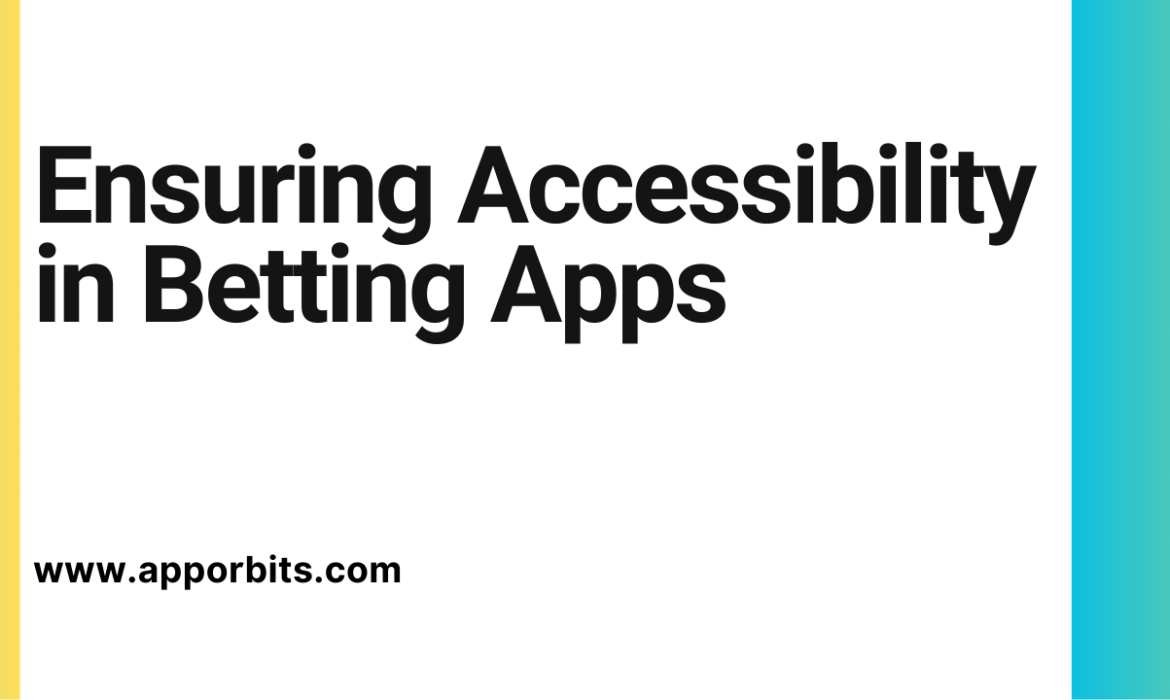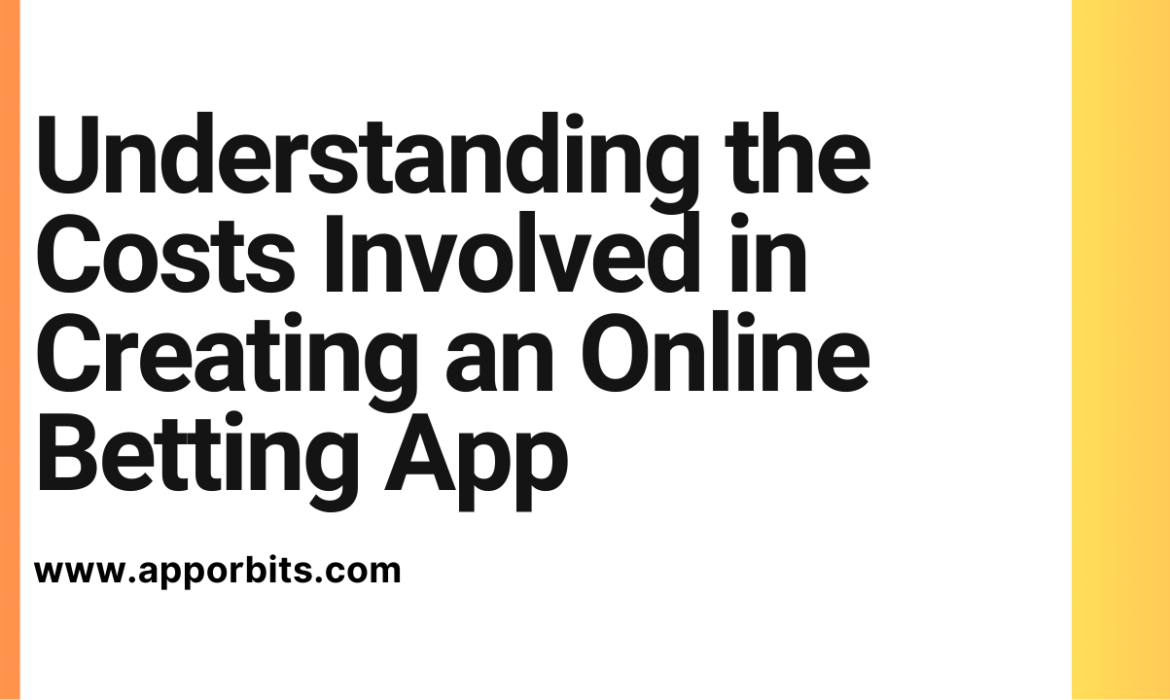The Future of Mobile Payments in Betting Apps
Mobile payments are gaining in popularity as users adopt secure and convenient platforms to execute transactions. These trends also influence the future of betting apps.
Gamified features like leaderboards and rewards encourage community building and appeal to a broader user base. Other innovations include augmented reality and virtual reality, which offer immersive experiences that keep bettors engaged.
- Carrier Billing
Carrier billing is an alternative mobile payment method that allows users to buy digital goods like games, media content and even sports bets through their mobile network providers. According to Juniper Research, payments via carrier billing will account for a huge proportion of all global mobile gaming and streaming spend in the years to come.
For betting operators, it means a streamlined checkout process where the player can use their mobile phone number to identify themselves and make a deposit. Carrier billing — also known as direct operator billing — eliminates the need for additional information such as a credit card or e-wallet to complete a transaction, and it has been shown to outperform other forms of payments in terms of conversion rates. It is a feature worth considering when planning your betting app’s future payment options.
- Cryptocurrencies
With the rise of cryptocurrencies, betting sites are now allowing players to place wagers using their preferred digital currency. This feature enhances user security and provides an enjoyable betting experience.
Cryptocurrency transactions are irreversible once confirmed on the blockchain. This makes erroneous transfers impossible to reverse and can result in financial losses for bettors.
To protect users from these risks, crypto betting apps must adhere to data protection laws. They should also provide transparent terms and conditions, deposit and withdrawal minimums, and dispute resolution procedures. Additionally, they should be verified by a reputable independent auditing firm to ensure that payouts are fair and random. Moreover, they should be compliant with local gambling regulations. This is especially important as some countries do not regulate gambling activities.
- AI-Driven Insights
Powered by predictive analytics, AI elevates sports betting apps by providing users with unprecedented insights and a personalized experience. This enables bettors to make more informed decisions and enhance their odds of winning.
It also enables sportsbooks to offer automated customer service, ensuring that queries are addressed in a timely manner and freeing up resources for other tasks. In addition, AI-powered tools can automate risk management processes and detect suspicious activity, thereby safeguarding user data and increasing security.
Sports betting apps also leverage AI to provide behind-the-scenes content and exclusive insights for fans, fostering deeper engagement in the industry. However, responsible implementation of AI technologies and adherence to ethical guidelines will be key to ensuring that these tools remain transparent and fair for all users.
- Social Media Integration
Betting apps offer a convenient and engaging experience that is accessible to players across the globe. By offering a wide variety of payment methods and immersive features, betting apps are propelling the industry forward and creating new opportunities for users and businesses alike.
Gamification and social features, like leaderboards and challenges, keep players engaged and entertained, encouraging them to make more bets. These features also help to broaden the audience, attracting a younger demographic and appealing to a broader range of players.
Data analytics and AI can boost user engagement by leveraging predictive marketing strategies to offer personalized promotions and content. Additionally, deep linking via email allows for tap-to-app engagement, resulting in more conversions. This is complemented by responsible gambling messaging to ensure regulatory compliance and prevent addiction risks.
- Personalized Betting Options
User expectations are constantly evolving in betting apps. Whether it is to receive real-time updates or to place bets on live games, users are looking for engaging digital experiences that meet their needs.
To increase user retention and engagement, betting apps should offer personalized offers and bonuses. These can range from welcome bonuses to loyalty rewards. Offering these features ensures that users will always have something new to look forward to and keep coming back for more.
Betting apps should also integrate eWallets to provide a faster and more secure experience. This allows users to deposit and withdraw funds from their betting account, without having to enter their bank details each time. It is also a great way to boost trust and compliance with data protection regulations.
Localizing Betting Apps for Different Markets
Sports betting is an exciting new industry that can connect people around the world. But, there are still rules businesses must follow. One important consideration is marketing localization.
This involves tailoring your app to local needs, including cultural nuances and idioms. It also requires accommodation of diverse technical requirements.
iGaming Markets
The iGaming industry has exploded in recent years, and localization has gone from being an added bonus to a critical necessity. Localization allows players to interact with games and betting platforms in their native language, ensuring they understand the rules and gameplay. This helps reduce frustration and increase player engagement.
It also ensures that the gaming experience aligns with local cultures and regulations. This requires careful consideration of the nuances of each market, as well as collaboration with local experts. It’s vital to understand the cultural sensitivities of your new audience to avoid offending them or breaking foreign laws.
The growth of the iGaming industry is fueled by many factors. The COVID-19 pandemic accelerated the industry’s expansion, but major technological advancements also played a role. For example, modern smartphones support augmented reality and artificial intelligence, which make it easier to create immersive gambling experiences. They also support instant in-game payments and digital distribution. These changes are expected to further boost the iGaming market in the coming years.
Legality
The legality of gambling varies from country to country. It depends on how governments regulate the industry and whether or not it is prohibited by law. In some countries, gambling is not only legal but also regulated and taxed. However, in many cases, it is still illegal. This is due to a number of factors, including addiction, the lack of regulation, and the difficulty in detecting problem gambling.
In the United States, sports betting is legal in most jurisdictions. After the Supreme Court struck down PASPA, individual states were allowed to make their own decisions on how to legalize sports betting. This resulted in a variety of state-licensed sportsbooks and a slew of apps for players to choose from.
Choosing the right app for your needs is important. You want an app that will run smoothly and not drain your battery. You also want an app that offers a wide range of betting options, including live in-game betting and in-play wagering. Some apps even have a geolocation feature that allows players to place bets in their local markets.
Regulation
The legality and popularity of sports betting are growing, but there are still many rules that businesses must adhere to when operating in different markets. It is important to conduct thorough market and regulatory research when creating a betting app or website, as localization is key to meeting the needs of your target audience.
In addition to ensuring that your content is in compliance with local laws, you should also consider cultural context. This will help you create deeper marketing strategies and build a trusting relationship with your customers.
Providing a seamless and intuitive user experience is critical to the success of your sports betting business. Effective communication in the native language of your audience builds trust and increases customer retention rates, which is essential to long-term profitability. This is why it is crucial to partner with a company that has extensive experience in this space. They will be able to guide you through the complexities of building an efficient and scalable sports betting application.
Payment options
When it comes to managing money on betting apps, many different options are available. These include credit cards, eWallets, and bank transfers. Each has its own advantages and disadvantages, so it is important to understand these before using them. This will help you make the best decision for your situation.
The most popular betting payment methods include eWallets and mobile payments. These services share virtual identifiers rather than your actual card details, making them very secure. Many of them also support mobile devices. For example, Apple Pay and Google Pay can be used on most iOS 8.1+ iPhones and Android smartphones. They are fast and convenient, and they offer security backups such as Touch ID or facial recognition.
Another option is Boku, a payment solution that lets you deposit on bookmaker sites using your mobile phone. This is a good choice for US residents because it is not linked to a bank account and does not charge fees.
Overcoming Loss Aversion in Betting
Loss aversion is one of the key biases that influence human decision making in the face of uncertainty. Combined with the possibility effect, it can lead people to give highly unlikely events more weight than their probability justifies.
Studies based on Prospect Theory suggest that people are more sensitive to losses than gains. This sensitivity is demonstrated by ERPs that reveal different responses to gambles with equal expected value.
- Understand the Bias
Loss aversion is a fundamental concept from the field of behavioural economics and describes the psychological weight placed on losses compared to gains. Amos Tversky and Daniel Kahneman’s research1 suggests that on average, a loss may be valued up to 2.5 times more than a gain.
Another bias that is common to sports betting is the control illusion, which is the illogical belief that you have more control over a random event than you really do. A bettor with this bias might think that their dice-throwing technique is better than their opponent’s or that they know both teams well enough to predict which team will win.
This irrational belief can lead to more reckless bets and decisions, especially when the results are unfavorable. One example is chasing losses, where bettors try to recoup their previous loses by placing bigger bets with lower odds, which can ultimately lead to more losing streaks. The recency bias is also a common cognitive bias, which is when people weigh recent data or events more heavily than they do older ones.
- Reframe the Issue
In order to combat loss aversion, you need to change the way that you view the problem. One of the best ways to do this is by reframing the problem itself. This can be a difficult task, but it’s essential if you want to overcome loss aversion.
For example, you might think that insulating your home is an expensive and time-consuming process, but if you frame it as a savings in energy costs, then you will be more motivated to take action. The same principle applies to a business: by reframing a bad result as an opportunity, you can encourage people to get back to work and make things right.
The concept of reframing is an important element in behavioral science, and was first introduced by Daniel Kahneman and Amos Tversky in the 1970s. Their prospect theory explains that we value potential losses more heavily than potential gains. This translates to our tendency to avoid risks and seek out safe options, even when they’re unlikely to succeed.
- Take a Long-Term Approach
Losses can be a part of betting and learning how to overcome them is key. Taking a long-term approach to losses and not giving into them can help you learn from your mistakes, develop confidence in your abilities and ultimately improve your gambling habits.
Behavioral science has established a phenomenon known as loss aversion1. In a famous graph, Kahneman and Tversky showed how people’s psychological values of gains and losses are represented by their preference for the amount to be gained when compared with the same quantity of the same loss. This is often captured with the phrase “losses loom larger than gains”.
This behavioural bias makes many of us less likely to take risks when it comes to investing money or buying new products, such as home insulation. It can also contribute to problems such as compulsive gambling, where individuals lose control over their betting and may even risk their relationships, lives and livelihoods.
- Remain Positive
The key to long-term success in betting is staying positive and not getting caught up on your recent performance. You will have losses and it is important to remember that this is part of the process. It is also important to keep in mind that variance will even itself out over large sample sizes and you should always evaluate the probability of a loss before making any bets.
This will help you to avoid the “certainty effect” that leads people to over-weight certain outcomes and under-weight those that are only probable. This type of thinking can make you averse to taking risks when they could pay off. A good way to combat this is by framing your decisions as if they were poker hands and calculating the expected value of each bet before you place it. This will help you to be more open to risk and to overcome the Loss Aversion Bias. The more you practice the better you will become at controlling your emotions and being able to think objectively about your betting.
Personalized Betting Experiences With Big Data
With the legalization of sports betting in North Carolina, operators are focusing on personalized experiences to boost engagement. To do so, they are integrating big data analytics into the betting experience.
Data analysis is improving accuracy and speed in sports betting, from predictive models to real-time monitoring of live data. It also increases user enjoyment by making content more relevant to their interests.
In-play or live betting
Big data analytics has transformed the sports betting experience by allowing gamblers to understand sports dynamics more thoroughly and accurately. It is also enabling better risk management strategies, which can help bettors make more educated wagering decisions and avoid the pitfalls of reckless betting. This technology is revolutionizing the industry and ushering in a new era of responsible gambling practices.
In-game betting, also known as live betting, allows bettors to place wagers on events that are currently taking place. In contrast to pregame wagers, these bets are based on real-time data, which enables bettors to make more informed bets and maximize their chances of winning. Live betting offers an exciting and engaging experience for both casual and serious sports fans.
As the legal sports betting market continues to expand, generative AI is bringing algorithm-driven personalization to online betting platforms. These technologies can analyze a bettor’s interests and preferences to offer personalized recommendations. In addition, they can use geolocation technology to ensure that users are within state boundaries and thus eligible to participate in legal sports betting.
Predictive betting
Big data’s integration into sports betting represents a massive shift in the industry and an opportunity to redefine the customer experience. From predictive modeling to real-time analytics, big data offers a variety of benefits that are essential for successful sports betting.
Predictive models leverage historical data to predict game outcomes and player performance, allowing bettors to make smarter wagering decisions. For example, a basketball model might analyze a player’s free-throw success rate in different weather conditions to forecast their shooting accuracy during an upcoming match.
Additionally, predictive models can identify market inefficiencies by identifying odds that do not accurately reflect the probability of an outcome. These insights can help bettors find lucrative opportunities and gain a competitive edge. Moreover, big data can also be used to personalize betting experiences by tracking user behavior and suggesting bets aligned with their preferences. This feature boosts engagement and ensures a safe gambling environment. Furthermore, it can detect suspicious patterns of activity and prevent users from making fraudulent bets.
Parlay cards
Parlay cards are a popular way for sports bettors to increase their winnings. Whether you’re placing a teaser or a reverse teaser (betting on both sides of the same game), it’s important to keep in mind that you’ll need to consider hedging strategies and bankroll management. This will help you maximize your profits.
Phythian sees an opportunity to leverage the personalization algorithms consumers are accustomed to on e-commerce sites and social media platforms by integrating AI into sports betting apps. He says that he believes that Generative AI will play a critical role in helping sports betting brands deliver the personalization that consumers demand.
Embracing the excitement and unpredictability of live sports offers bettors the chance to react to changing odds and momentum shifts in real time. This allows bettors to place InPlay parlays, creating a more dynamic experience and increasing the potential for betting wins. However, this also means that bettors must take more care in selecting events and evaluating odds.
Personalized recommendations
With sports betting becoming increasingly popular in the United States, operators need to find new ways to retain their customers. One way to do so is by offering curated experiences. This personalized customer experience can lead to improved user retention and increased lifetime value.
Generative artificial intelligence (AI) is poised to help bring the algorithm-driven personalization that consumers are accustomed to on e-commerce and social media platforms to the world of sports betting. A startup called SharpLink Gaming is developing a personalization and recommendation engine that uses machine learning to tailor sports betting experiences to the interests of individual users.
The company’s platform suggests sports bets aligned with a user’s favored teams and players, increasing engagement. It also offers customized content, such as team news, stats, and betting odds. Its local focus increases loyalty and fosters a sense of community among fans. It can also encourage bettors to place more bets and try new types of bets.
Gaming and Betting Trends
Gambling trends are shaped by different age groups and different experiences. For gambling operators to offer the best products, they must be aware of these differences.
Sports bettors skew younger and are more likely to join betting apps like FanDuel. These apps make it easier to place wagers, without having to visit a physical casino.
eSports
The world of video gaming has experienced a remarkable transformation with the rise of eSports. These competitive video game competitions have become global phenomena, attracting millions of fans and billions in revenue. This phenomenon has also opened up new investment opportunities in the form of gaming industry exchange-traded funds (ETFs).
eSports has blurred the lines between gambling and betting, and many of its participants are at risk of developing gambling disorder. This is due to the high amount of time that players spend on eSports, which can lead to negative health outcomes such as physical injuries and sleep disturbances. It can also exacerbate co-existing mental health problems like anxiety and depression.
eSports betting offers an intriguing mix of digital competition and strategic wagering that draws in gambling enthusiasts from around the world. Its popularity has increased with the growing audience of gamers, who are embracing this trend and investing in its growth. However, this trend comes with its fair share of challenges and considerations, such as integrity-related issues and the risk of match-fixing.
Blockchain
Blockchain has gained significant traction in gaming trends and is expected to continue growing as it offers a variety of advantages. For example, it can speed up the movement of information and reduce the cost of transactions. In addition, it can allow players to make more informed decisions.
Other technological innovations are also influencing the gaming industry, including virtual reality and artificial intelligence. These technologies can create new opportunities for sports betting operators and improve the customer experience. They can also help to identify problem gamblers and implement responsible gambling initiatives.
These trends will be beneficial for online casinos, especially as millennials are becoming increasingly interested in eSports. However, the gaming industry must address ethical issues and develop responsible gambling practices to ensure growth in a sustainable way. This will require collaboration among various stakeholders. For instance, the industry needs to work with legislators to protect minors from underage gambling and combat betting scams. It should also develop better security protocols for its platforms.
Live streaming
Live streaming is a new technology that allows users to experience live events and interact with content in real time. It is transforming how people connect with entertainment, making it more accessible and engaging for a wider audience.
The gaming industry is also embracing live streaming, as gamers can broadcast their gameplay to global audiences. This has introduced a whole new level of interactive entertainment, allowing gamers to create communities and share their experiences with others. Livestreaming has also opened up new revenue streams for gaming companies and has created a new way to market products.
However, the livestreaming trend also poses certain risks. People can act on impulse while online and say or do things they would not do offline. This increases the risk of children or young people being exposed to inappropriate material. It is important to prioritize safety and security by using reputable platforms, verifying the legitimacy of sources, being cautious of phishing attempts, and keeping your devices up to date.
Virtual reality
Virtual reality, or VR, is a 3D simulated environment that can be explored with the help of special hardware and software. It is often used to immerse players in a gaming experience and make them feel like they are part of the action.
This technology is transforming the online gambling industry and offering gamers more exciting experiences. It is also blurring the boundaries between sports betting and casino games. However, it is important to note that these innovative developments should not distract from responsible gaming practices.
The global virtual sports betting market is growing at a rapid pace. This is mainly due to increasing internet penetration and mobile device usage. It is also fueled by the rising demand for 24/7 betting opportunities. It is also helped by technological advancements, including simulation technology that increases realism and appeal. In addition, the emergence of algorithms that determine race or match outcomes has broadened the market’s appeal and attracted new audiences.
Ensuring Accessibility in Betting Apps
Betting apps have brought unprecedented convenience and accessibility to the world of gambling. However, this access can also lead to compulsive gambling behavior and pose risks to individuals and the financial ecosystem.
Prioritizing comprehensive responsible gambling features promotes healthy engagement by empowering users with useful tools for self-regulation. This includes game tutorials, visible betting histories and on-screen responsible gambling messages.
User-centric design
A betting app must be easy to use and accessible for all users. It must be intuitive to navigate and provide a clear, visual presentation of data. It should also be responsive to different screen sizes and devices. This will help you maximize user engagement and retention, making it a valuable tool for your business.
A smooth onboarding process is critical for converting first-time users into recurring customers. A seamless registration system with email verification and strong password requirements ensures user security. Additionally, a well-considered UI/UX design can lower cognitive load and enable rapid decision-making. This can lead to higher user satisfaction and more transactions.
In addition, sports betting apps must be able to adapt to different legal environments. This requires a continuous delivery of software updates and bug fixes. This can be accomplished by implementing regular automated tests and using machine learning algorithms to predict vulnerabilities. This will improve application stability and keep it competitive.
Support for multiple languages
The use of multiple languages enables sports betting apps to cater to a diverse audience, breaking down barriers for users. It also helps ensure that the content of a bet is understandable to everyone, regardless of their language. This increases user engagement and improves the likelihood of retaining them.
Betting apps must be scalable to accommodate peak traffic and support massive data processing, including odds management and payment processing. They should also be secure to prevent unauthorized access to users’ personal information. This can be achieved through data encryption, two-factor authentication, and other security measures.
Back-ends power the critical behind-the-scenes workflows integrating external sports data, odds management, and payment processing. Java’s scalability, security and cross-platform portability make it a top choice for back-end development. Other popular options include NoSQL databases like Apache Cassandra, which combines distributed architecture and tenable consistency to scale reads/writes linearly with no single point of failure. These features enable sports betting apps to handle huge transactional volume without performance bottlenecks.
Account management features
Users want to know their money is safe, and top betting apps ensure that through robust security features. They also provide real-time updates, stream live matches, and deliver fresh news. This keeps users engaged and gives them a more immersive experience.
Account management features allow users to deposit and withdraw funds using secure payment methods, check their account balances, and update personal information whenever needed. This way, they can enjoy a hassle-free betting experience.
Adding a feature that allows users to view their wagers and sort them by different filters is also a good idea. It can help them keep track of their bets and make better decisions about the next move.
Another important feature is a wallet function that lets them add multiple cards and make deposits and withdrawals quickly and easily. A convenient wallet can also help them monitor their spending habits and reduce gambling addictions. In addition, a wallet can also store loyalty points and other rewards.
Accessibility for individuals with disabilities
Mobile sports betting is a growing industry that provides fans with a more engaging way to interact with their favourite teams. It is also a profitable source of revenue for sport organisations. Fortunately, accessibility for individuals with disabilities is a top priority for many modern sports betting apps.
To make an app more accessible, the developer must ensure that the design is responsive to different screen sizes and device orientations. In addition, the content must be easily readable for users with visual or motor function impairments. This includes ensuring that forms have adequate contrast, and using unique link text to prevent confusion for blind or mobility-impaired users who click links and end up in different destinations.
Adding accessibility features in sports betting apps is not only good business practice, but it also meets regulatory requirements in some jurisdictions. In addition, it helps to expand the market reach and improve user satisfaction. In fact, a well-designed app with intuitive sports betting features can turn new customers into recurring ones from the very first day of use.
Understanding Luck in Betting
When it comes to gambling, many people believe that luck plays a huge role. While strategies such as bankroll management and choosing the right games can improve one’s odds of winning, they cannot eliminate pure chance. The Two Jar Model is a simple way to illustrate this concept.
This article explores the delicate balance between skill and the unpredictability of luck in gambling. It also offers practical strategies to help bettors maintain control and rationality in the exciting world of sports betting.
Games of chance
Games of chance are any game where the outcome is determined by random variables. This includes gambling, horse races, dice games and even sports events. The most important factor in these games is that players do not influence the outcome. They may be able to make decisions that affect the result, but they cannot control it. This is why these games are considered games of chance. Despite this, people often blame luck for their defeats, a phenomenon that is based in part on the fact that it is easy to pinpoint an unlucky event like a bad roll of the dice or a missed goal.
There are different types of games that rely on chance, including pure games such as roulette and slot machines, and games that combine chance with skill. For example, baccarat is a game of chance in which the winner is determined by whether a player or banker has a sum closest to nine. However, a skilled player can consistently win significantly more than chance allows. This has been borne out in extensive analysis of game statistics.
Sports betting
Whether placing a bet for fun or applying your knowledge to win at sports betting, it is important to understand the role of luck. While a little bit of luck is important, successful betting requires cold calculation and disciplined bankroll management. Understanding how odds are calculated can help you make more informed decisions about your betting strategy.
Luck impacts betting outcomes in ways that even the most skilled bettors cannot predict. For instance, a player’s sudden injury or unexpected weather conditions can dramatically alter the anticipated outcome of a game. This unpredictability is what makes sports games exciting and adds excitement to the betting experience.
However, the influence of luck diminishes over time as bettors develop their skills. This is evident in the fact that experienced bettors rarely have hot or cold streaks. In addition, a bettors’ knowledge and disciplined betting techniques can significantly improve their results. This is why it’s important to stick with a well-defined betting budget and to stay in control of your bets.
Influencing luck
A successful betting strategy involves predicting luck and skill, and determining which of these factors will be more important in an event. This can be accomplished by using various methods, including analyzing patterns and comparing statistics. Using these techniques can help you win more often, especially in games that involve skill.
In general, it seems appropriate to affix the label “lucky” to agents with objective or subjective interests like self-preservation or desires. For instance, a human or dog is lucky to survive a fortuitous rockfall, but a stick of wood is not.
Defenders of objective probabilistic views might argue that, in principle, the fact that a certain event is lucky for an agent depends on its significance. However, they can be troubled by counterexamples, such as Lackey’s demolition case, that show that knowing an event’s significance does not necessarily prevent it from being lucky for an agent.
Strategies to influence luck
In sports betting and casino gambling, the elusive element of luck can be difficult to control. While it is important to understand the role of luck, bettors can still maximize their odds of winning by following effective strategies and managing emotions. This exploration delves into the relationship between skill and luck in a variety of gambling arenas, including sports betting and the burgeoning field of crypto casinos.
In addition to learning from past experiences, bettors can also improve their chances of success by taking regular breaks and reflecting on their decisions. This will help them maintain perspective and avoid a negative mindset, which can lead to poor decision-making. Additionally, bettors can try changing their seating positions to shake off bad luck. Whether they are losing on a particular seat or simply having bad luck, many gamblers find that moving their seats helps them turn things around. This strategy has been compared to the placebo effect in medicine and can help people change their gambling habits for the better.
Betting App Innovation and Regulation
Compliance with evolving regulatory requirements is essential for betting apps. Implementing age verification, responsible gambling features and data protection measures helps companies meet regulatory standards while safeguarding consumers.
Using soft law instruments, like guidelines and standards, can allow regulators to quickly adapt to new business models and technologies. This approach also allows regulators to avoid stifling innovation.
Bet builder option
A bet builder option is a great way to combine multiple individual betting markets into a single, customised bet that will give you higher odds. You can find bet builder options at many reputable betting sites. These features are similar to Request a Bet, Your Own Best Bet, YourCall, and Bet & Get and offer players a greater level of control and flexibility over their bets.
Essentially, bet builders are a kind of accumulator for a single match and have become increasingly popular with sports betting fans. They allow bettors to create a custom bet based on their predictions and instincts, with the potential for higher returns than traditional accumulators. They also help to increase player engagement by providing more variety and personalisation in the betting process. Bet builders are available for a range of different sports, with soccer being the most common choice, but tennis and American football/ice hockey also feature prominently. These types of markets are usually available pre-match and in-game, but can change during the event if there is an unexpected outcome or the game is abandoned.
In-game wagering options
The emergence of new betting apps is revolutionizing the way sports bettors wager. These apps offer a variety of features and allow users to place bets from any location, seven days a week, twenty-four hours a day. They also provide reliable statistics and in-game wagering options. In addition, they offer a variety of bonuses and special offers for players to boost their bankrolls and increase their chances of winning.
Developing a betting app requires extensive research and market analysis. You need to know the strengths and weaknesses of your competitors in order to design an app that will perform better than theirs. Moreover, you need to understand how your app can improve user engagement and create a symbiotic relationship between user participation and the monetization of the app.
A good betting app should have a convenient wallet feature, which allows users to add credit card credentials and top up their accounts. It should also offer a “Rules” screen where users can examine the gambling policy.
Customer service
Regulatory changes ripple across the betting industry, affecting everything from player acquisition to responsible gambling efforts. Keeping up with these trends requires impeccable technical skills and a deep feel for the market. It also involves creating a seamless user experience that makes sports betting as accessible as possible for everyone.
Complying with comprehensive support and dispute handling regulation boosts customer service and player retention. Detailed FAQs, transparent escalation processes and robust reporting requirements demonstrate accountability and enable accessible, ethical participation.
Layered sports betting app responsible gambling safeguards prevent underage access and problematic gambling. Accurate age verification, identity checks and document scans validate users to ensure compliance with registration rules. Self-exclusion timeouts and automated algorithmic monitoring of betting activity alert users to concerning streaks before harm manifests. Staff training and responsible gambling awareness campaigns promote healthy engagement. In addition, geo-fencing tech and publisher blacklists limit advertising to registered players.
Regulatory compliance
A company’s regulatory compliance policy should define clear roles and responsibilities for employees who manage its adherence to the law. It should also provide a training program that teaches employees how to identify compliance issues and how to respond. This will help them maintain compliance and prevent violations of the law.
Providing transparency to employees about compliance policies and procedures may lead to increased employee engagement. Moreover, it can reduce risk and increase customer confidence in the organization. Regulatory compliance also improves the reputation of the business, resulting in a positive impact on its bottom line.
Strict adherence to state-level sports betting regulations legitimizes mobile real-money wagering and supports accessible, ethical participation. It also helps minimize risks of severe fines, license revocations and destroyed consumer trust. In addition, adhering to reporting and operations rules facilitates faster annual licensing renewals. Partnering with specialized advisors ensures smooth audits.
The Complete Guide to Developing a Successful Sports Betting App
Building a sports betting app requires careful thought and planning. To succeed, it is necessary to understand the complexities of this field, hire experienced app developers who possess excellent understanding of user behaviour, and ensure compliance with legal and regulatory standards.
Additionally, it’s essential to include an efficient customer management feature which enables you to monitor customer activity and manage accounts efficiently so you can swiftly address any customer questions or complaints.
Legality
Sports betting apps have quickly become popular among sports fans, providing an interactive way to wager on sporting events. The apps are easy to use and offer real-time updates as well as multiple payment methods.
Prior to hiring a betting app development company, it is important to understand and comply with local legalities and regulations. Different countries have various gambling laws; operating without a valid license could incur fines as well as ruin your reputation in the industry.
An essential aspect of app security is incorporating a robust payment system with various payment methods, such as e-wallets, debit, and credit cards, that supports multiple currencies based on where your app will be released. Implementing features like privacy settings and account controls can build trust among users; in addition to this, make sure your backend infrastructure can handle heavy user traffic volumes.
Integration with eWallets
Financial features of betting apps are vital to providing users with an enjoyable user experience. Users should have access to multiple payment options – credit cards, e-wallets, bank transfers – in addition to supporting multiple currencies and offering security measures like OTP verification for added safety.
E-wallets (or digital wallets) are digital accounts that securely store credit card or bank account details and make online funds transfer simple and swift. These services can be used for gambling online and boast several advantages over traditional banking methods, including enhanced speed and privacy.
Betting applications that support multiple eWallets will likely draw users from around the world and help them manage their finances more effectively and reduce risks related to excessive gambling. A good betting site should offer users a dedicated betting wallet which keeps winnings separate from regular bank accounts for safety, as this promotes responsible gambling practices while building trust among users.
Bonuses and promotions
Building a sports betting app can be both rewarding and profitable for developers, but it’s essential that developers place equal priority on user experience and security when designing such an application. This means protecting users’ financial data as well as offering a variety of deposit and withdrawal methods for deposited and withdrawal funds.
Push notifications are another key component of a sports betting app, alerting users when their wagers have been placed or won – this helps build engagement with users as they feel more connected to the app and its community.
Integration of a calendar or schedule feature can enable users to keep informed and plan their betting strategy accordingly. Also, voice command accessibility features make the app more usable for those with visual impairments or limited dexterity issues; all of these can help your betting app stand out in the market and attract a broad user base.
Customer support
Customers seeking answers quickly need access to excellent customer support features to keep betting enthusiasts satisfied and loyal to a platform. Offering multiple ways for customers to contact customer support quickly can prevent issues from arising quickly and provide the answers needed.
Not everyone needs or prefers email communication; for these customers a phone number provides another means of support that may or may not involve human agents – depending on the platform it may even include pre-recorded messaging systems that work more like chat support than real live humans!
Integrating multiple betting options is crucial to increasing user engagement and offering a personalized app experience. Features like head-to-head betting and handicapping add an extra level of complexity to bets, making them more engaging to place and increasing chances of victory. Experienced bettors also appreciate this type of complexity in bets they place; livestreaming offers another interactive way for users to interact with their bets.
Understanding the Costs Involved in Creating an Online Betting App
Building an online betting app can be an expensive endeavor, with costs dependent upon factors like features and complexity of the app, platform chosen and number of developers required for development.
Maintaining an online betting app can be costly, but viewing these expenses as strategic investments will ensure a user-friendly, safe, and legally compliant app.
Design and UI/UX
Sports betting apps must offer a user-friendly interface in order to attract and retain users. A well-crafted UX can enhance user interactions while decreasing cognitive load – increasing usability while facilitating swift decision-making during live sporting events.
An easy user registration process and secure payment gateway are both key elements in creating a trustworthy environment for customers and building loyalty. Furthermore, apps must also be capable of operating without Internet connectivity to minimize fraud risk.
One of the primary costs of running a sports betting app is its hosting costs, which depend on user volume. A higher user count requires more resources such as larger servers which increases overall costs. Furthermore, development, maintenance and licensing expenses must all be factored into their total costs.
Development
Created a sports betting app takes time, so it is essential that you select the appropriate developers so as to receive a high-quality product and avoid delays. Furthermore, it is imperative to comply with legal regulations in your country.
Backend development of an application is key for its scalability and effectiveness, so developing a microservices infrastructure – a network of autonomous services linked via API – should help manage heavy user traffic without experiencing issues, make real-time updates without interruption and enable easy bet placement as well as provide push notifications that maintain engagement among your target market. To achieve this objective, consider building out a microservices architecture consisting of autonomous services linked through API to achieve this result. To do this successfully, an array of microservices infrastructures linked via API will ensure smooth user interactions while making real-time updates without disruption; also consider including payment gateway integration that will facilitate easy bet placement among your userbase in real-time changes within minutes, along with push notifications providing further engagement among target market audiences – an approach reliant upon push notifications that keeps customers engaged through your app without issues arising due to heavy user traffic congestion issues or real time changes made without issues from users to make real time changes without issues occurring from users or heavy user traffic management issues by managing heavy user traffic management; similarly push notifications must also provide push notifications so as to manage heavy user traffic flow effectively across apps or websites and providing push notifications so as not to reduce any potential issues and maintain engagement by giving push notification service users for easy placing bets/ push notification services provided push notification service services to keep users.
Platforms
Building an online betting app requires multiple platforms in order to provide users with an optimal experience. Payment system integration and user sign-in using email credentials or social media are musts in creating such an app.
FanDuel requires its backend to support millions of users and keep them informed in real-time about changes, which requires a scalable server architecture capable of handling high amounts of data and transactions. Furthermore, pushing notifications should be sent out automatically so as to increase engagement among players while encouraging more bets placed and therefore increase revenue for betting apps like FanDuel. Lastly, this app must be safe to use and secure.
Maintenance
An effective sports betting app must offer users with multiple payment options and allow for easy deposit and withdrawal of funds, tracking of progress and bets as well as public chats/forums to promote user engagement – these features are vital in creating a thriving sports betting community.
Sports betting apps should include features for betting management, odds management, marketing & promotions and multiple languages support in order to appeal to a global audience. While these features may appear costly at first, they will help your app remain resilient in today’s ever-evolving tech environment while ongoing maintenance expenses such as bug fixes & security patches will make up a considerable proportion of its total cost.
Licenses
If your business model involves online betting, obtaining a license to operate legally will be crucial in building trust among your users. While obtaining such an approval may take some time and cost money, gaining it will add legitimacy and trust with users of your betting platform.
To retain users, your online betting app’s interface should be easy for customers to navigate and intuitive. Furthermore, to protect both reputation and regulatory penalties from security failures, SSL certificates for data encryption as well as robust firewalls should be implemented to ward off threats posed by potential threats and integrate robust firewalls to counter threats should also be installed and integrated as soon as possible. These features may incur additional expenses and ongoing maintenance fees – therefore setting aside an emergency fund should unforeseen expenses or financial hiccups arise.












